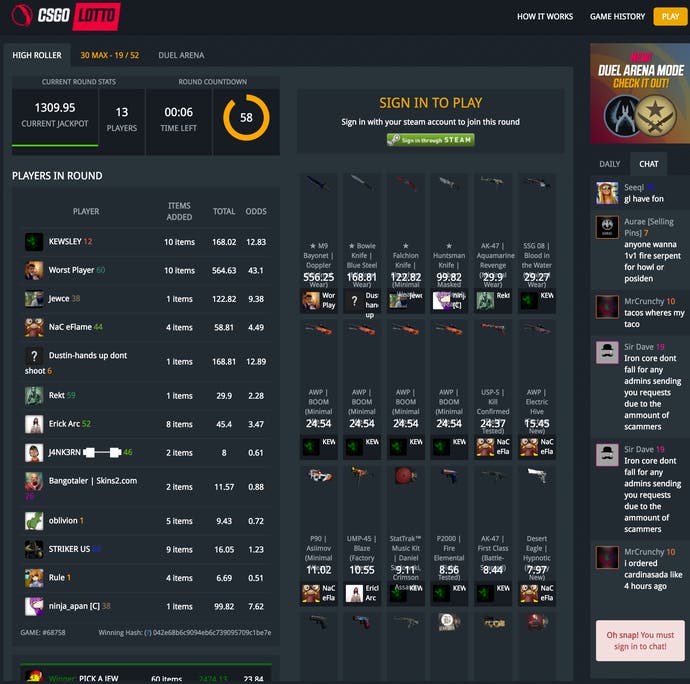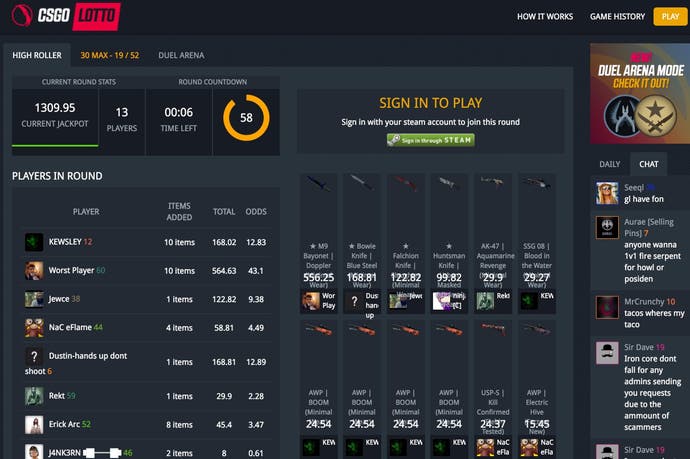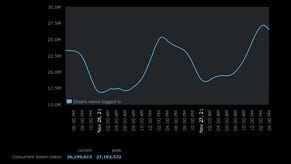Valve to crack down on gambling sites offering in-game goods
"We have never received any revenue from them."
Valve has promised to crack down on users who offer in-game goods as prizes for gambling sites.

Previously, the video game and Steam developer had been implicated in a class action lawsuit for facilitating gambling sites that make their money by offering in-game goods, like $3200 skins, as potential prizes.
Things got even dicier when it was discovered that some of these sites, such as CS:GO Lotto, were rigged with videos of its owners (Trevor "Tmartn" Martin and Tom "Syndicate" Cassell) pretending to have just stumbled upon the site and winning big.
Further complicating matters were the fact that age restrictions could easily be bypassed on these sites, so much of the capital came from minors.
Valve has recently issued a statement claiming that it wants no part of this black market that arose from the company's enabling players to trade virtual goods. The Steam company stated that it makes no money off the schemers who have gamed the system to launch gambling sites and that it will take action to prevent people from doing this.
"In 2011, we added a feature to Steam that enabled users to trade in-game items as a way to make it easier for people to get the items they wanted in games featuring in-game economies," said Valve's Erik Johnson. "Since then a number of gambling sites started leveraging the Steam trading system, and there's been some false assumptions about our involvement with these sites. We'd like to clarify that we have no business relationships with any of these sites. We have never received any revenue from them. And Steam does not have a system for turning in-game items into real world currency.
"These sites have basically pieced together their operations in two-part fashion. First, they are using the OpenID API as a way for users to prove ownership of their Steam accounts and items. Any other information they obtain about a user's Steam account is either manually disclosed by the user or obtained from the user's Steam Community profile (when the user has chosen to make their profile public). Second, they create automated Steam accounts that make the same web calls as individual Steam users.
"Using the OpenID API and making the same web calls as Steam users to run a gambling business is not allowed by our API nor our user agreements. We are going to start sending notices to these sites requesting they cease operations through Steam, and further pursue the matter as necessary. Users should probably consider this information as they manage their in-game item inventory and trade activity."
It's not exactly apparent what Valve means by "further pursue the matter as necessary", but it's clear that Valve means business here.








